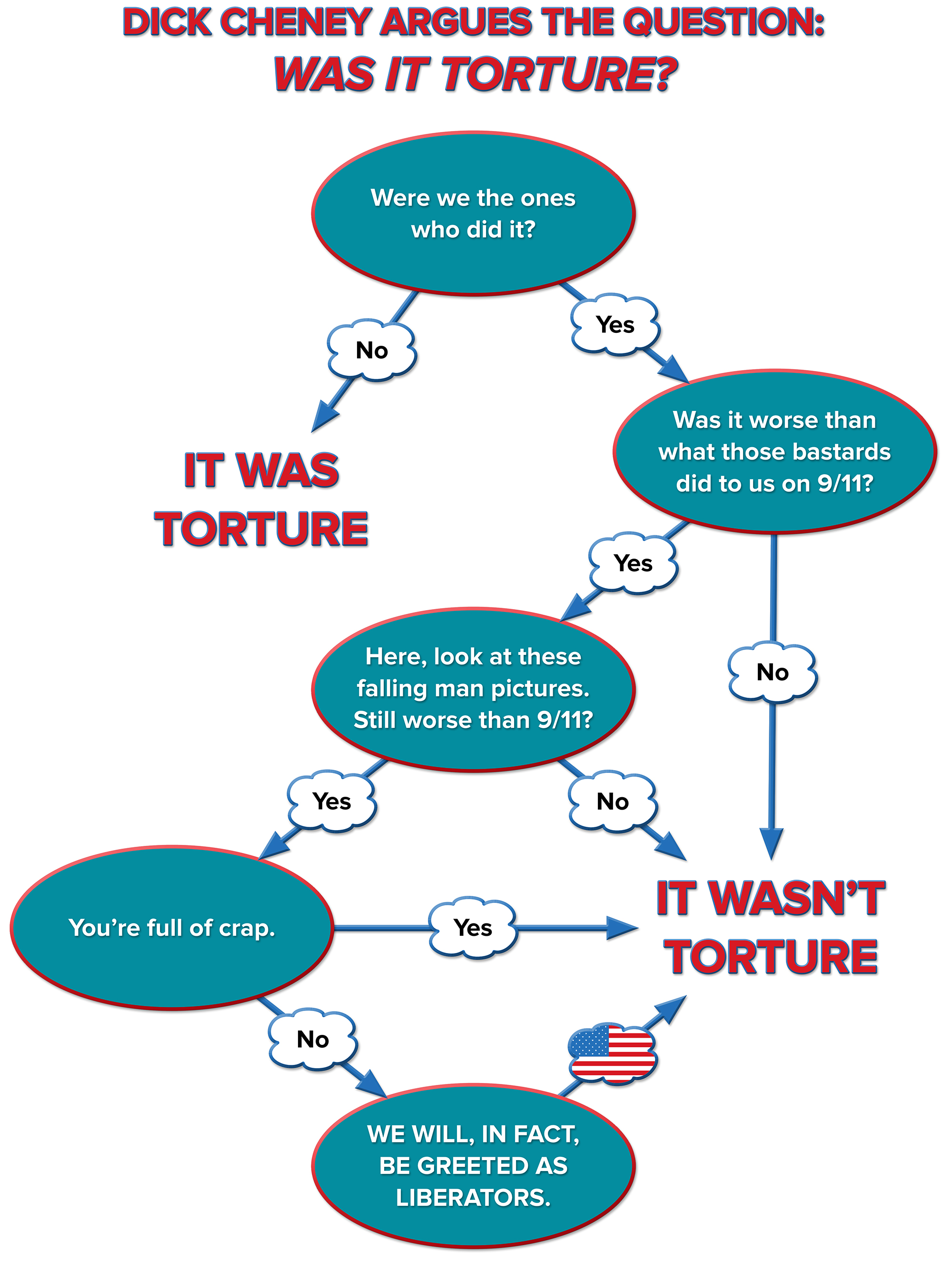At least Silberman acknowledges that the WMDs didn’t exist, and that our war aims depended on the existence of WMDs. And by doing so, Silberman implicitly accepts that the invasion of Iraq – and not merely the intelligence failures leading up to it – was a colossal foreign policy and military blunder with enormous costs in blood, treasure and prestige. Quibbling about whether President Bush (as opposed to the Bush Administration) lied (as opposed to being merely prone to confirmation bias) is, to me, a distraction from what might be learned from a tragic failure of governance and leadership.
Which leads me to say, okay, President Bush (the person) didn’t (knowingly, willfully) lie. So what? What, exactly, does that prove about the stupidity and fecklessness of government in the 21st century – just a few years following the end of a long cold war during which, through a combination of smarts, moral courage, rigorous analysis, skepticism and, yes, basic humanity did we (and the Soviets), our immense nuclear arsenals on hair-trigger alert, still manage not to wipe out civilization? If intelligence failures up the US chain of command had resulted in our launching a nuclear first strike against the Soviet Union and their launching a retaliatory strike against the United States, would the fact that the President’s own personal conduct wasn’t to blame have helped one God-damned thing? Have we really defined Presidential leadership down to this extent?
Another way that Silberman’s analysis oversimplifies and distracts is by setting up the “intelligence community” and the “Bush Administration” as separate entities operating at arm’s length. I think anyone who understands how government institutions operate, especially at the executive policy-making level, knows that individuals from different offices, agencies and even branches of government tend to create informal alliances and networks that share information and access and pursue common policy agendas. Nothing especially nefarious about this – but these alliances and networks do tend to obscure whether someone is “pressuring” someone else to make a particular finding. In other words, the fact that elements of the intelligence community and the Bush Administration were working together with the shared goal of invading Iraq (apparently on the basis of any plausible pretext) makes it next to impossible to find the smoking gun evidence that Silberman seems think is necessary to conclude that any arm-twisting took place.
Look. As I am forever reminding you, this is the government we’re talking about. Government agencies and their agenda-setters come up with ideologically motivated, poorly reasoned findings as a matter of utmost routine. Want the CIA to say that Saddam has WMDs? The neoconservative alliance says: here you go. Want the Treasury Department to say that asset management firms can threaten financial stability? The market risk hysteria network says: coming right up. There is no difference between the two except in terms of their potential for death and destruction. Anyone who automatically gives more deference to police/military/intelligence agencies just isn’t thinking clearly.
